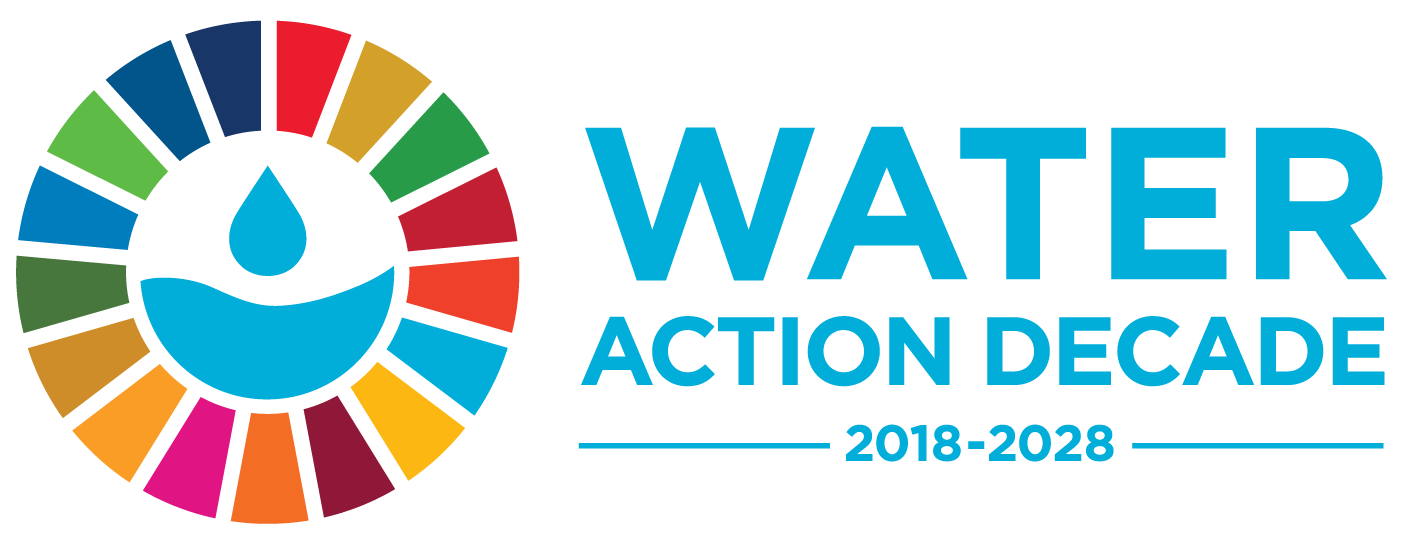المياه والصرف الصحي
بيان
خلال عدة عقود ماضية، أدت الطلبات المتزايدة باستمرار على الموارد المائية وسوء استخدامها إلى ازدياد مخاطر التلوث والإجهاد المائي الشديد في أجزاء كثيرة من العالم. وما فتئت الأزمات المائية المحلية تزداد تواترا وشدة، مع ما يترتب على ذلك من آثار خطيرة على الصحة العامة، والاستدامة البيئية، والأمن الغذائي وأمن الطاقة، والتنمية الاقتصادية. ولا تزال الخصائص الديموغرافية تتغير وتؤثر الممارسات الاقتصادية غير المستدامة على كمية ونوعية المياه المتاحة لنا، مما يجعل المياه موردا متزايد الندرة والتكلفة - لا سيما بالنسبة للفقراء والمهمشين والضعفاء.
ويعود الإقرار بأهمية المياه إلى مؤتمر مار دل بلاتا الذي عقد في الأرجنتين عام 1977 والذي وضع خطة عمل بشأن ”الإمدادات المائية للمجتمع المحلي“، معلناً أن لجميع الشعوب الحق في الحصول على مياه الشرب بكميات ونوعية تلبي احتياجاتها الأساسية. وأثيرت أهمية المياه كذلك في العقد الدولي لتوفير مياه الشرب والمرافق الصحية من عام 1981 إلى عام 1990، كما أُثيرت في عام 1992 في مؤتمر الأمم المتحدة المعني بالبيئة والتنمية في ريو دي جانيرو (جدول أعمال القرن 21، الفصل 18)، وفي المؤتمر الدولي المعني بالمياه والبيئة في دبلن. وفي عام 1993، أعلنت الجمعية العامة للأمم المتحدة 22 آذار/مارس يوم المياه العالمي، وفي عام 2013، أعلنت يوم 19 تشرين الثاني/نوفمبر اليوم العالمي لدورات المياه.
وفي عام 2000، دعا إعلان الألفية بشأن التنمية إلى خفض نسبة الأشخاص المحرومين من مياه الشرب المأمونة إلى النصف بحلول عام 2015، وخفض نسبة الأشخاص الذين لا يحصلون على المرافق الصحية الأساسية، وفي عام 2003 أعلنت الجمعية العامة السنة الدولية للمياه العذبة، يليها عقد ”المياه من أجل الحياة“ من عام 2005 إلى عام 2015.
ولتنسيق جهود كيانات الأمم المتحدة والمنظمات الدولية العاملة في قضايا المياه والمرافق الصحية، أنشأ مجلس الرؤساء التنفيذيين في الأمم المتحدة عام 2003 آلية الأمم المتحدة للمياه - وهي آلية مشتركة بين وكالات الأمم المتحدة لتنسيق مسائل الماء العذب والصرف الصحي.
وفي عام 2008، أعلنت الجمعية العامة للأمم المتحدة السنة الدولية للصرف الصحي وفي 28 تموز/يوليه 2010، اعترفت الجمعية العامة للأمم المتحدة صراحة بحق الإنسان في الحصول على المياه والصرف الصحي بواسطة القرار 64/292.
وفي أيلول/سبتمبر 2015، اعتُمدت خطة التنمية المستدامة لعام 2030 في مؤتمر قمة الأمم المتحدة، وتشمل على الهدف 6 من أهداف التنمية المستدامة بشأن المياه والصرف الصحي، وفي كانون الأول/ديسمبر 2016 اتخذت الجمعية العامة للأمم المتحدة بالإجماع القرار المعنون ”العقد الدولي للعمل - الماء من أجل التنمية المستدامة“ (2018-2028) دعماً لتحقيق الهدف 6 من أهداف التنمية المستدامة وغيرها من الأهداف المتعلقة بالمياه. وتقع المياه أيضاً في صميم اتفاقات بارزة مثل إطار سِنداي للحد من مخاطر الكوارث واتفاق باريس لعام 2015.
ولذلك، فإن ضمان المياه وخدمات الصرف الصحي للجميع وإدارتها إدارة مستدامة لصالح الجميع كان لفترة طويلة موضوعاً في الأمم المتحدة، والأولوية الآن هي تحويل الرؤية الجديدة لأهداف التنمية المستدامة المتصلة بالمياه في خطة عام 2030 إلى واقع ملموس، من خلال القيادة الوطنية والشراكة العالمية. فالمياه والصرف الصحي جوهر التنمية المستدامة، كما أن مجموعة الخدمات التي تقدمها تدعم الحد من الفقر والنمو الاقتصادي والاستدامة البيئية. ويتعين على العالم الآن تغيير الطريقة التي يدير بها موارده المائية والطريقة التي يقدم بها خدمات المياه والصرف الصحي لبلايين البشر.
مزيد من المعلومات والوثائق عن هذا الموضوع، يرجى زيارة هذا الرابط.
This is a compilation of SDG 6 references in statements delivered at the General Debate of the 75th Session of the United Nations General Assembly. The information reflected on this website has been taken directly from the official statements received from Member States and does not imply the expression of any opinion whatsoever on the part of the Secretariat of the United Nations. For those statements not available in English, an unofficial translation was prepared.
For more information on the General Assembly process, please click here.
Countries marked with an asterisk (*) represent Member States who have made firm commitments to advancing SDG 6 in their statement at the General Debate of the 75th Session of the UN General Assembly.
Afghanistan
Azerbaijan*
Bahamas
Bangladesh
Belgium
Belize*
Benin
Botswana
Cabo Verde
Chile*
Colombia
Côte d’Ivoire
Ethiopia
Fiji*
Guatemala
Honduras
Hungary*
India*
Japan
Kazakhstan
Kyrgyzstan
Maldives
Mozambique
Namibia
Nauru
Nepal
Niger
Romania
Samoa
San Marino
Senegal
Sierra Leone*
Slovenia
South Africa
Spain
Syrian Arab Republic
Tajikistan*
Ukraine
United Republic of Tanzania
This is a compilation of the 2020 Voluntary National Reviews (VNRs) regarding information reported on SDG 6. The information reflected on this website has been taken directly from the official VNRs received from Member States and does not imply the expression of any opinion whatsoever on the part of the Secretariat of the United Nations. For those VNRs not available in English, an unofficial translation was prepared.
For more information on the VNR process, please click here.
To read the 2020 VNR Synthesis Report, please click here.
To read the 2021 Compilation of main messages for the 2021 VNRs, please click here.
To read the Secretariat Background Note for the VNRs at the 2021 HLPF, please click here.
Afghanistan | 2021
Argentina | 2020
Angola | 2021
Antigua & Barbuda | 2021
Armenia | 2020
Austria | 2020
Azerbaijan | 2021
Bangladesh | 2020
Bhutan | 2021
Bolivia | 2021
Brunei Darussalam | 2020
Bulgaria | 2020
Burundi | 2020
Cabo Verde | 2021
Chad | 2021
China | 2021
Colombia | 2021
Comoros | 2020
Cuba | 2021
Cyprus | 2021
Czech Republic | 2021
Democratic People's Republic of Korea | 2021
Democratic Republic of the Congo | 2020
Denmark | 2021
Dominican Republic | 2021
Ecuador | 2020
Egypt | 2021
Estonia | 2020
Finland | 2020
Gambia | 2020
Germany | 2021
India | 2020
Indonesia | 2021
Japan | 2021
Kenya | 2020
Kyrgyz Republic | 2020
Lao People's Democratic Republic | 2021
Madagascar | 2021
Malaysia | 2021
Marshal Islands | 2021
Mexico | 2021
Morocco | 2020
Mozambique | 2020
Namibia | 2021
Nepal | 2020
Nicaragua | 2021
Niger | 2020, 2021
Nigeria | 2020
North Macedonia | 2020
Norway | 2021
Panama | 2020
Papua New Guinea | 2020
Paraguay | 2021
Peru | 2020
Qatar | 2021
Republic of Moldova | 2020
Russian Federation | 2020
San Marino | 2021
Spain | 2021
Sweden | 2021
Thailand | 2021
Tunisia | 2021
Uganda | 2020
Ukraine | 2020
Uruguay | 2021
Uzbekistan | 2020
Zambia | 2020
Zimbabwe | 2021

About the Water Action Decade 2018-2028
The United Nations has long been addressing the global crisis caused by unsafe water and sanitation and growing demands on the world’s water resources to meet human, economic and environmental needs.
In December 2017, UN Member States adopted United Nations General Assembly resolution 71/222 on an International Decade for Action on ‘Water for Sustainable Development’ 2018-2028.
In response to the ambitious 2030 Agenda, the Water Action Decade will accelerate efforts towards meeting water-related challenges, including limited access to safe water and sanitation, increasing pressure on water resources and ecosystems, and an exacerbated risk of droughts and floods.
Water and sanitation are preconditions to life and we must put a greater focus on these human rights. During the decade, the international community sets out to:
- Advance sustainable development
- Energize existing programmes and projects
- Inspire action to achieve the 2030 Agenda
Learn more at Water Action Decade | Department of Economic and Social Affairs
Action Networks for the SDGs are action-oriented networks and communities that are maintained by UN system entities or actors that focus on accelerating progress in certain sustainable development thematic areas, typically contributing to multiple interlinked SDGs.
Action networks are useful in mobilizing resources, generating momentum and creating awareness, spurring tangible results in support of the objectives of the network, scaling up existing initiatives or catalyzing new SMART commitments and actions.
Acceleration Action Updates 2021
The following actions were published in July (updated July 12th):
1. City Water Resilience Approach (CWRA) | Arup, Stockholm International Water Institute (SIWI) & Resilient Cities Network (RCN)
2. Support action, innovation and learning to address source-to-sea priorities | Action Platform on Source-to-Sea Management (Partnership)
The following actions were published in June:
1. Reimagine WASH: Making services climate resilient to tackle water scarcity - (UNICEF) & Stockholm International Water Institute (SIWI)
2. Water/ocean governance thought leadership, thematic expertise, technical support and policy advocacy promoted and strengthened globally - UNDP & SIWI Water Governance Facility
3. The H2O Project for Youth Engagement in Rural Field Actions | My H2O
4. Scaling up a sustainable solution for safe drinking water | 1001 Fontaines
5. Prev leak project | Technologica Plumbing Solutions
The following actions were published in May:
1. The H2O Solution for clean drinking water in rural China | My H2O
2. Extend access to drinking water at the bottom of the pyramid using chlorinated solutions in Burkina Faso | BILADA
The following actions were published in March:
-
Strategic Action Programme for the Lake Chad Basin - Building Climate Change Resilience and Reducing Ecosystem Stress | UNDP
-
Ending Coastal Water Scarcity using the Sea & Sun | Elemental Water Makers
-
Rain Water Management | Shree Someshwar Education Trust
-
WaterProject | University of Southeastern Norway
-
SDG 6 IWRM Support Programme | Global Water Partnership
-
Integrated Environmental Management of the Río Motagua Watershed | Ministry of Foreign Relations Guatemala
-
TSC Water Security Fund® | Thomas Schumann Capital
-
Water Resources | UNDP
-
Water- Energy- Food -Safety- Ecology -Community- Health (WEFSECH) | SeaNexus bluebioeconomy
-
BrighTap | BrighTAP
-
Global Sustainable Supply Chains for Marine Commodities - Ministries and Bureaus of Fisheries and Planning of Costa Rica, Ecuador, Indonesia and The Philippines
Featured SDG 6 Action Networks
| Acceleration Actions | Conscious Fashion and Lifestyle Network |
| SDG Good Practices | Decent Jobs for Youth |
Browse commitments from all networks here.
Even before COVID-19 struck, progress on Sustainable Development Goal (SDG) 6 was alarmingly off track. According to the latest UN report, the current rate of progress on achieving water and sanitation for all will have to quadruple to meet the 2030 deadline.
On Friday, 9 July 2021, a virtual SDG 6 Special Event will be hosted during the High-level Political Forum on Sustainable Development 2021. In line with the theme of the 2021 high-level political forum on sustainable development, the Special Event will focus on how the SDG 6 Global Acceleration Framework can support a sustainable and resilient recovery from the COVID-19 pandemic that promotes the economic, social and environmental dimensions of sustainable development, and builds an inclusive and effective path for the achievement of the 2030 Agenda in the context of the decade of action and delivery for sustainable development.
The SDG 6 Global Acceleration Framework introduces this multi-stakeholder, high-level, annual stock-taking event to enable stakeholders to keep up momentum on SDG 6 as well as share lessons and best practices. The SDG 6 Special Event will review the progress to date and showcase some of the projects that have been developed around the Framework. As a new contribution to the SDG 6 Global Acceleration Framework, progress on the SDG 6 Capacity Development Initiative will be introduced by the co-coordinators UN DESA and UNESCO.
- Watch the recording of the event here.
- Access the agenda for the special event, hosted on 9 July 2021 here.
For more information, please check the UN-Water website: http://www.unwater.org/sdg-6-special-event-during-high-level-political-forum-on-sustainable-development-2021

UN SDG: Learn is a United Nations initiative that aims to bring relevant and curated learning solutions on sustainable development topics to individuals and organizations.
Through the collaborative efforts of the United Nations, multilateral organizations, and sustainable development partners from universities, civil society, academia and the private sector, UN SDG: Learn provides a unique gateway that empowers individuals and organizations through an informed decision when selecting among a wealth of SDG-related learning products and services that are currently available.
Click here to see all the online courses related to SDG 6 Clean Water and Sanitation.

